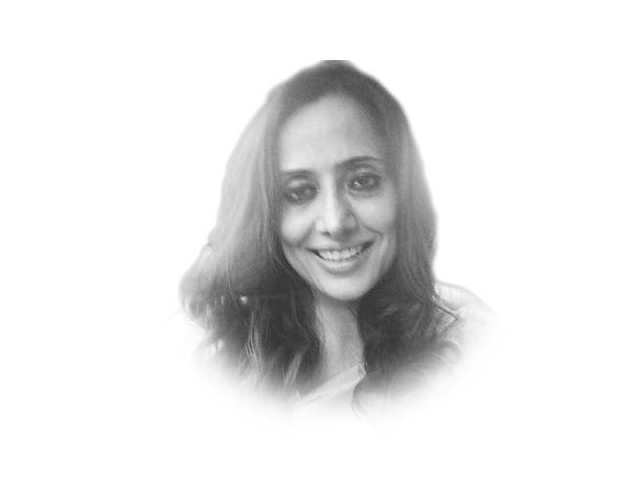We are all responsible
When was the last time any of us offered a bottle of water to a person standing on a roadside under the blazing sun?

The writer is a former op-ed editor of the Daily Times and a freelance columnist. She can be reached on twitter @MehrTarar
The people who have died are not victims in a warzone. They were not even hit by an unavoidable natural catastrophe like a flood or an earthquake. In the month of June, the deaths have occurred due to an unusual heatwave that scorched Karachi for days. While millions prayed for rain, many fell prey to the heat; a heat that is so much a part of our lives that it seems like a scene from a horror movie to hear of people dying because of it. Let’s blame it all on climate change. Notwithstanding the inevitability of all natural phenomena, there is much that is at play in this horrific scenario, and it is time all of us thought long and hard: millions in our cities live in worse conditions than animals, and there is nothing but absolute apathy that is displayed vis-a-vis the conditions in which they exist.
Consciences are awakened when pictures of frail, weather-beaten, emaciated persons are shown on HD screens and cluttered social media timelines. The leathery faces, the hard, calloused hands, the jutting ribcages, speak of a life where the body died long before the heatwave sealed it with a fatal blow. The dead bodies of nondescript men, women and children from that class of people who exist amidst us as invisible beings: peripheral, indistinguishable and insignificant. We ONLY talk about them — for a few hours, days — when we hear of them as statistics in another tragedy.
Bearing the Lahore summer in this blistering June, I’m no stranger to the hell this season brings. I grew up in simpler times when houses were huge, cities were greener, and long summers were spent in villages where one gust of wind meant no electricity for hours, and a strong shower of rain took away the electricity, along with mango-tree branches and sleep. I know what heat does to bodies and land, and to know that so many of my compatriots died simply because they were exposed to heat that we deal with every day of the summer in Lahore, numbs my mind. It’s so tragic, so preventable, so unnecessary that it’s macabre.
All around us, these people exist toiling amidst heat, cold, rain, darkness, long hours, tiny breaks, bad food, little or no water, dirty water, and endless days. And we drive past them grumbling gosh-how-hot-this-Monday-is, ensconced in our air-conditioned cars. Working on daily wages, they build houses, multi-storied buildings, flyovers and underpasses, perched without any safety gear on girders, climbing flimsy ladders, wiring newly-made walls and ceilings without any rubber gloves. They don’t put too high a value on their lives while they give their all to earn a living for their families.
While waiting for public transport they feel the heat burning holes in their bodies but they bear it with nothing more than a grunt. Most roads are stripped of trees, and there are not many places where they can take a few minutes of refuge from the heat. Leaving the dark, electricity-and-water-less hole that they call a house, those on bicycles ride for miles under the sweltering sun to workplaces where the labour is intense and the breaks very few. In the month of Ramazan, eating and drinking is prohibited in public places, and these people who work the entire day — unlike those who work from 8am-2pm in air-conditioned banks and offices during the holy month of prayer and patience — would be arrested if seen taking a sip of water, as their heads spin, hearts beat faster, and blood levels drop low.
And we become aware of their presence only when they appear as dead bodies on our TV screens and Twitter timelines. It’s not just power outages, shortage of water, shoddy governmental policies but also our apathy that is responsible for all the dead bodies in Karachi. When was the last time any of us offered a bottle of water to a person standing on a roadside under the blazing sun? Stopped the car to give a ride to children walking in heavy rain? Reached out to a frail person on a pavement who seemed almost comatose being hit deeply by cold or heat?
Published in The Express Tribune, June 26th, 2015.
Like Opinion & Editorial on Facebook, follow @ETOpEd on Twitter to receive all updates on all our daily pieces.














COMMENTS
Comments are moderated and generally will be posted if they are on-topic and not abusive.
For more information, please see our Comments FAQ